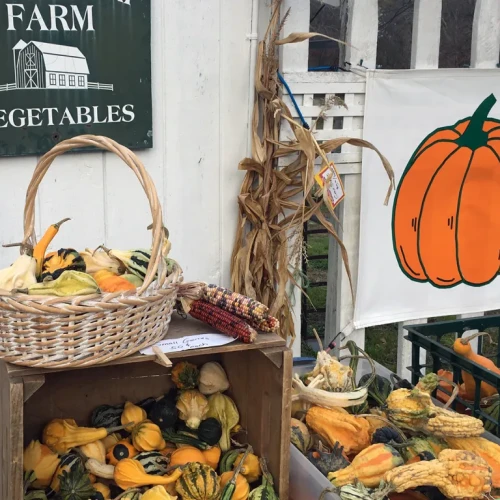At a time when a trip to the grocery store is bound to come with some sticker shock, the idea of paying 10-25% more is unpopular, to say the least.
But, for some things, there may be a workaround.
“Buy more local food by shopping at a local farmer’s market,” said Nessa Richman, network director of the Rhode Island Food Policy Council.
Her non-profit organization works with others across New England to promote a more regional diet.
The most recent study from The New England Food System Planners Partnership, based on 2022 data, suggests only 3% of the food New Englanders eat is sourced locally. These groups hope to see that grow to 30% by 2030.
The pandemic helped nudge things in that direction when disruptions to the supply chain prompted more consumers to find food sources closer to home. The tariffs may too, according to Ken Ayars of the Rhode Island Division of Agriculture.
“Whether it’s the stresses of climate change, or supply chain disruptions, tariffs, whatnot, there’s always stress on the food system,” Ayars said. “We anticipate the shocks and we’ve been working a long time to make sure it’s resilient.”
No one New England state has it all. But each has something to offer the others – tariff-free.
“We need to be working together as a region to make sure we are supplying each other first before shipping them outside of our country or our region,” said the Food Policy Council’s Nessa Richman.
Certain products will never be grown in Rhode Island. Avocados, for instance, or coffee, or tropical fruit. So the approach these food policy experts advocate means people would have to be willing to rethink what they eat, buying products in season, grown closer to home.
Less packaged and processed food with fewer preservatives may have health benefits. And, with today’s high grocery prices, that approach may make economic sense too.
Farm Fresh Rhode Island, which runs several local farmers markets, is hoping to open a factory later this year that makes a regionally sourced marinara sauce.
“It’s too early to say how greatly tariffs are going to impact all of us,” said executive director Jesse Rye.
Another group, the Southside Community Land Trust, owns and manages 21 community gardens in Providence, Pawtucket, and Central Falls, helping Rhode Islanders grow their own food sustainably.
Many of their farmers are immigrants and refugees, the mission all the more vital in neighborhoods where fresh produce can be hard to find.
Tariffs will likely hurt the non-profit that supports them.
Executive director Margaret DeVos said a new greenhouse the land trust is building will likely face higher construction costs, given higher tariffs on lumber, steel, and aluminum. To the extent that hoses, fertilizer, and farm equipment tend to be imported too, tariffs will clearly have an impact on the cost of growing food.
But, for the urban farmers she works with, tariffs may be the least of their worries.
“Most of them are growing to feed their families,” DeVos said.







